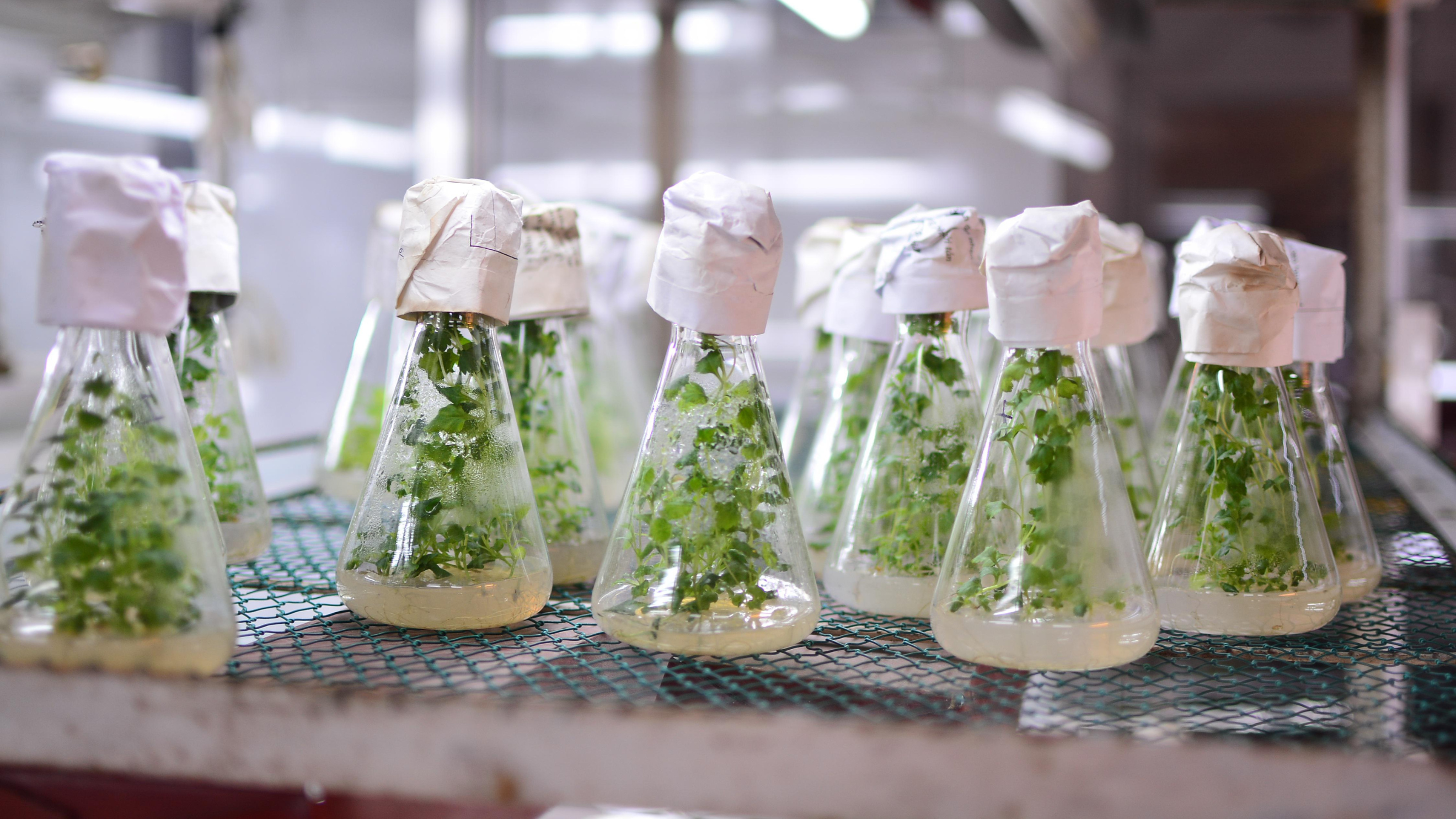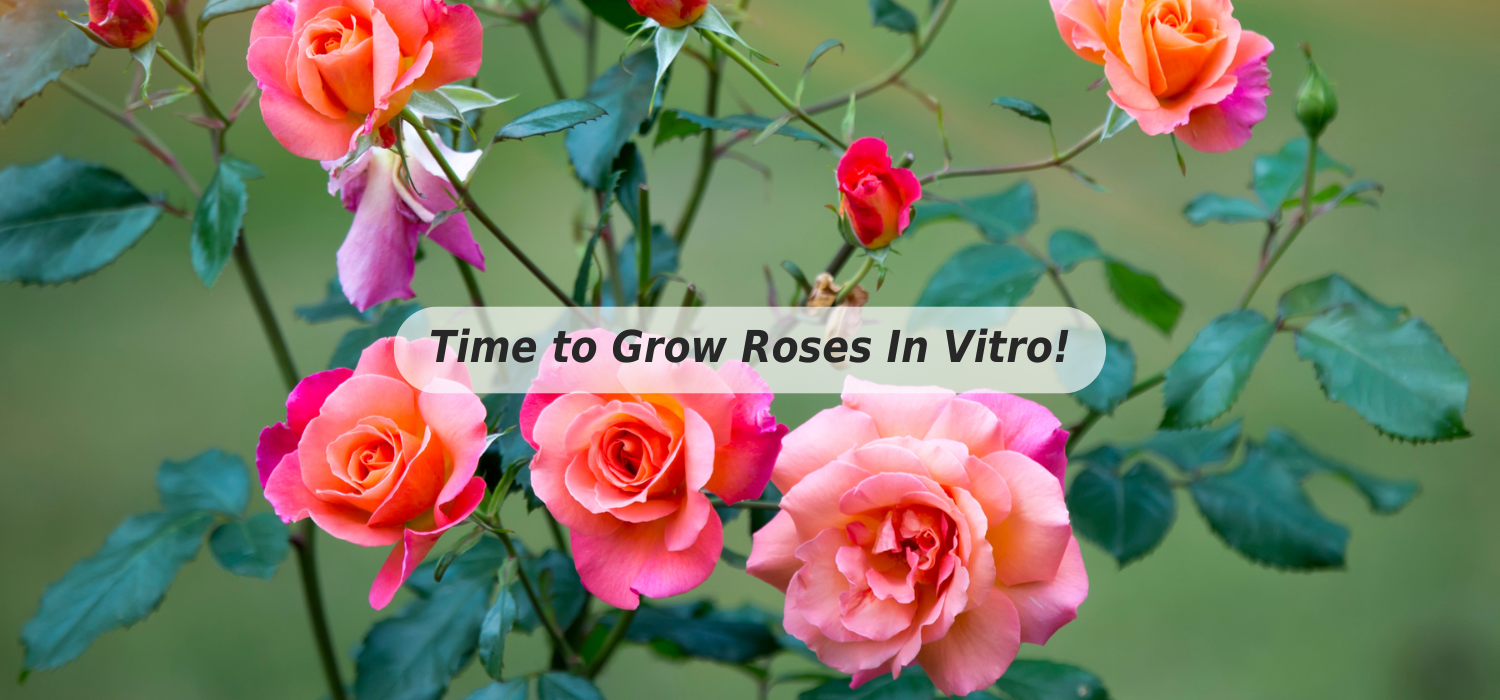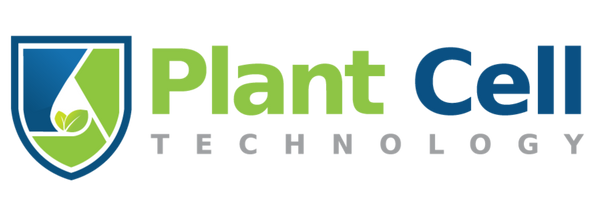
Elevate Your Culture: 7 Essential Tissue Culture Tools
As a content and community manager, I leverage my expertise in plant biotechnology, passion for tissue culture, and writing skills to create compelling articles, simplifying intricate scientific concepts, and address your inquiries. As a dedicated science communicator, I strive to spark curiosity and foster a love for science in my audience.


Why Tissue Culture?
Tissue culture is a wonderful technique for the cut-flower industries, agriculture industries, and pharma industries as well. It’s a medium of handsome-earning for small-scale businesses and culturists. Culturing is a technical process that requires a lot of practice and tissue culture knowledge. The strong applications of tissue culture in today’s world are attracting quite a number of people to start their own labs to create a product that stands out, filling their pockets using those superb end-products.
For beginners, starting a tissue culture business without much skill is a daunting task. It’s like shooting in the dark! Tissue culture requires some amount of experience, you can’t just start with a handful of knowledge.
But, here's good news! Plant Cell Technology is the partner in all your tissue culture processes. We’ve got your back!! We provide you all your needs to start a tissue culture business. From tissue culture lab requirements, technical knowledge in a very simplified form, updates on recent moves in tissue culture, consultation, and giving you a hand in building your own lab!
Awesome, right?
A common question we receive from beginner culturists is what kind of apparatus they should use for the media preparation and what kind of tools can make their culturing processes less stressful to start. If you would like to find out, please keep reading!
1. Culture vessels or apparatus
It’s essential to choose a high-quality culture vessel because it’s where your plants grow. This should maintain the sterile environment for the growing culture and create a barrier for contaminants from the outside environment. The type and quality of culture apparatus affect how plants grow inside the vessel. The culture vessel maintains the internal environment for the growing cultures.
The best culture vessel for the plant tissue culture use should have the following properties:
- Autoclavable or heat resistant
- Efficiently work in gas exchange.
- Clear or transparent to visualize the growth of explants
- Easy reach to cultures
Apart from this, sterile culture vessels are also available in the market that can not be reused. These vessels are not heat resistant so they can not be autoclaved. But, glass culture vessels are highly recommended by culturists to provide the best environment for the growth cultures.
The best thing about the PCT glass culture vessel is that its lid contains a filter for proper gas exchange.
One other model of culturing a vessel is the GA-7 vessel. These vessels support rapid seed germination, easy inoculation, and easy transfer. They provide bigger room for the explant growth. The gas exchange in this vessel is better than the other culture vessels. They are lightweight and easy to stack on incubator shelves.
2. Conical Flasks
The conical flasks have a wider below area and thinner neck area. These are used for the surface sterilization purpose or preparation of the culture media. Larger sizes of conical flasks are used to maintain the suspension cultures. Or cultures requiring liquid media.
3. pH meter
The perfect pH of media is essential for the perfect growth of cultures. So, a pH meter is another essential piece of equipment for your tissue culture labs. It is used to measure the pH of the prepared media. Measuring the pH of media is essential to avoid spoilage of any cultures. Only a certain pH supports the cell division and growth of the cells/tissues.
How does it work?
A standard pH meter has two electrodes. One glass electrode measures the pH and another calomel reference electrode, filled with saturated KCL solution. When the glass electrode or pH probe is put in the solution, it senses the hydrogen activity around the thin glass bulb. This generates a small voltage that is measured and displayed as pH units by the meter.
4. Magnetic Stirrer
The magnetic stirrer is used in the surface sterilization of the media and preparation of the growth media. This ensures uniformity throughout the solution. The device is a combination of a magnetic mixer platform with magnetic bars. When a solution containing a vessel is placed on the platform and the magnetic bar is immersed in the solution, it creates a rotating field. The magnetic field spins the magnetic bar that causes a stirring of the solution.
If there is any heating element in your media, then a hot plate magnetic stirrer is also available to facilitate this process.
5. Thermometer
This instrument measures the temperature. The physical environment of the cultures plays a huge role in determining the health of the growing explant. A U-shaped maximum-minimum temperature is used to determine the maximum and minimum range of temperature, for the day, in the culture room.
6. Hygrometer
This is an instrument, used to measure the humidity. Dial type hair hygrometer is generally used to measure the humidity in a culture room. If you want to maintain 60% relative humidity, then a humidifier is the best tool for this purpose. One other instrument, humidistat, is used to control and regulate the function of humidifiers.
7. Lux meter
It is a device that is used to measure light intensity. The light intensity is measured in the unit of lux. And, a range of 1800-2500 lux is provided to cultures for their proper growth. The specific intensity of the light differs from one plant species to another.
The artificial light in the culture rooms can be provided by using cool, white, fluorescent tubes, or incandescent bulbs.
Choice of the right tools and apparatus plays a major role in enhancing the quality of end products of tissue culture. If there’s anything that you require for your plant tissue culture processes or have any queries or confusion, write to us at anjali@plantcelltechnology.com or fill this form to send us your message. We’re here to assist you in your tissue culture processes!!
Happy Culturing!!!

References
Blog Categories
View by Level
Popular Blogs

The Future of Plant Cloning: What’s Next in Tissue Culture Innovation?
Introduction Plant cloning is the process of producing genetically identical copies of a parent plant. This results in offspring that...
Read More
Rose Micropropagation: A Comprehensive Overview
Introduction Valentine’s Day just passed—did you gift a rose to your loved ones? Roses have long been cherished for their...
Read MoreSubscribe to Our Newsletter








Join the conversation
Your email address will not be published. Required fields are marked